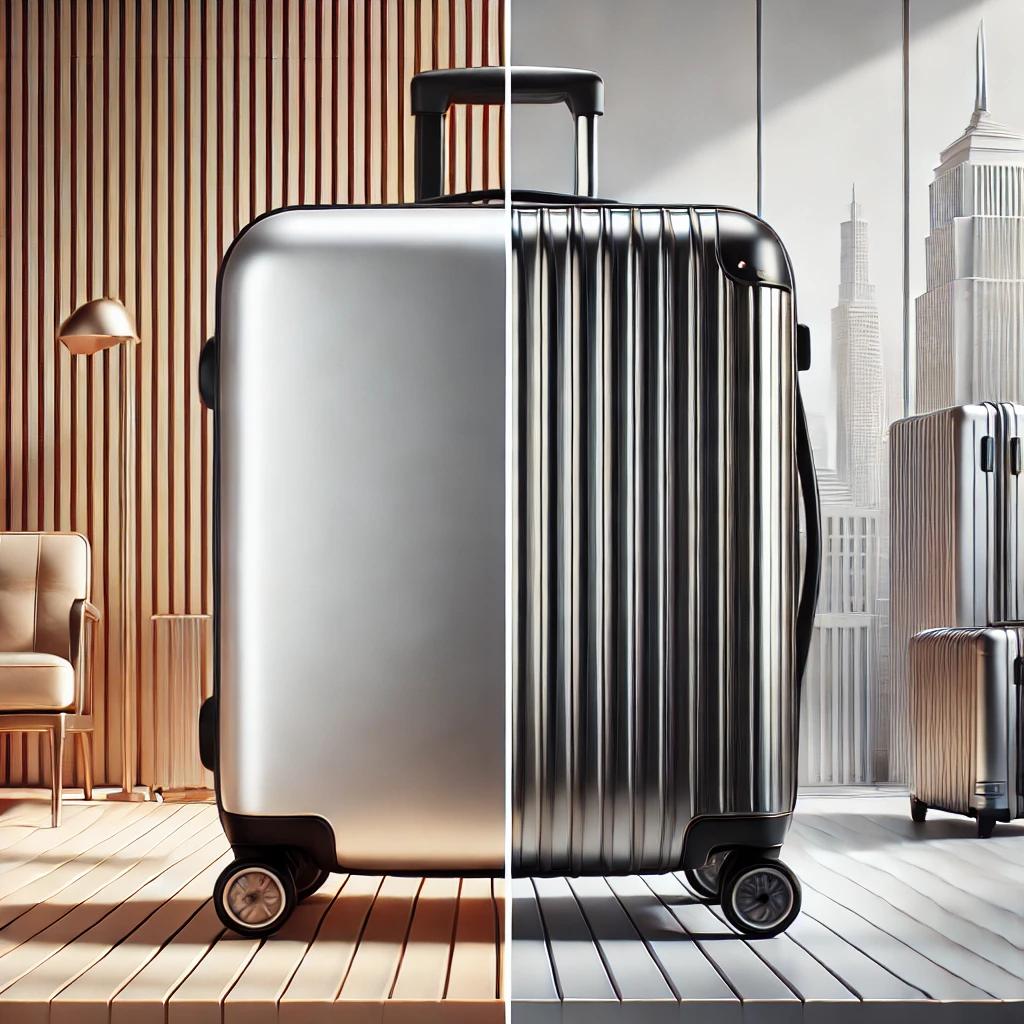Introduction
Choosing the right luggage can make all the difference in your travel experience. Whether you’re a frequent flyer, a business traveler, or an occasional vacationer, deciding between hard shell and soft shell luggage is an important choice. Both have their own advantages and drawbacks, and the best option depends on your travel needs. In this guide, we’ll compare durability, weight, flexibility, security, and storage capacity to help you decide which type of suitcase is best for you.
1. Durability & Protection
- Hard Shell Luggage:
- Made from materials like polycarbonate (PC), ABS, or aluminum, which provide superior protection against impact.
- Ideal for fragile items since the rigid exterior prevents crushing.
- Resistant to scratches, but cheaper materials (ABS) may crack under pressure.
- Soft Shell Luggage:
- Usually crafted from nylon or polyester, making it more flexible and resistant to minor scuffs.
- Can absorb shocks better, reducing the chance of external cracks.
- Susceptible to tears or cuts, especially during rough handling.
✅ Winner: Hard shell for protection, soft shell for durability in rough conditions.
2. Weight & Portability
- Hard Shell Luggage:
- Generally heavier due to the solid structure.
- Some modern polycarbonate models are lightweight, but still heavier than fabric luggage.
- Soft Shell Luggage:
- Lighter than hard shell, making it easier to carry and lift.
- Preferred for carry-on luggage to stay within airline weight limits.
✅ Winner: Soft shell for lightweight convenience.
3. Storage & Expandability
- Hard Shell Luggage:
- Fixed shape means less flexibility in squeezing into tight spaces.
- Some models have an expandable middle section, but storage flexibility is still limited.
- Soft Shell Luggage:
- More expandable and flexible, allowing travelers to fit extra items.
- External pockets provide quick access to essentials like passports, chargers, or snacks.
✅ Winner: Soft shell for storage flexibility.
4. Security & Water Resistance
- Hard Shell Luggage:
- Offers better water resistance (great for rainy destinations).
- More secure as it can’t be easily cut open by thieves.
- Comes with built-in TSA-approved locks for added security.
- Soft Shell Luggage:
- More vulnerable to theft since fabric can be slashed with sharp objects.
- Not as water-resistant, but some models come with waterproof coatings.
✅ Winner: Hard shell for security and weather protection.
5. Best for Different Travel Styles
| Travel Type | Best Choice |
|---|---|
| Business Travel | Hard shell (professional look + secure for laptops) |
| Backpacking or Adventure Travel | Soft shell (lightweight + flexible) |
| Frequent Flying | Hard shell (durable for checked luggage) |
| Short Weekend Trips | Soft shell (carry-on friendly) |
| Luxury Travel | Hard shell (premium appearance + protection) |
Final Verdict: Which One Should You Choose?
There is no one-size-fits-all answer—the best luggage depends on your travel needs.
- Choose hard shell luggage if you prioritize durability, security, and water resistance.
- Choose soft shell luggage if you need lightweight, flexible, and expandable storage.
For frequent travelers, a combination of both—a hard shell for checked luggage and a soft shell for carry-on—might be the best solution.
What’s your go-to luggage type? Let us know in the comments!


